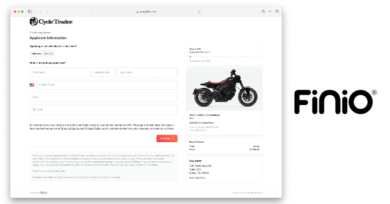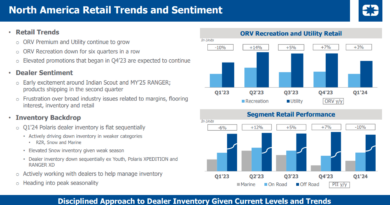SEO: Why the set-it-and-forget-it model won’t work
 Out of the box, when you purchase a website from an experienced website provider, your site has some search engine optimization (SEO) baked into the framework. Your site is coded for quick load time, the page URLs are SEO-friendly, and meta data including page titles and descriptions is added. However, unless your website vendor also provides you with ongoing SEO services, this responsibility falls on you. You may take the next critical step of adding some content to your site. But besides your inventory, how often do you really update your website? How old is your home page content? When is the last time you took a look at your service or parts page? Is your website optimized to allow search engines to find your site and display it in the results for prospects searching for your products?
Out of the box, when you purchase a website from an experienced website provider, your site has some search engine optimization (SEO) baked into the framework. Your site is coded for quick load time, the page URLs are SEO-friendly, and meta data including page titles and descriptions is added. However, unless your website vendor also provides you with ongoing SEO services, this responsibility falls on you. You may take the next critical step of adding some content to your site. But besides your inventory, how often do you really update your website? How old is your home page content? When is the last time you took a look at your service or parts page? Is your website optimized to allow search engines to find your site and display it in the results for prospects searching for your products?
Managing your online dealership presence is just like managing your brick and mortar store; your website isn’t a set-it-and-forget deal, it’s a process. And if you’ve been ignoring it, your website is likely losing traffic and leads to your competitors. That’s too much at stake. 81% of consumers conduct local searches on search engines prior to making a purchase1. And, 84% of clicks resulting from searches are organic – these are the results directly below the paid ads on the search results page. Furthermore, the top five search results on the first page receive 67% of all the clicks2. You can’t afford to let your competitors control the top spots.
Staying on top of SEO takes time and expertise. Gone are the days of adding a bit of keyword-rich content. When indexing sites, Google’s spiders need to be able to easily access your web pages and assets so they can effectively rank your site based on matching the relevance of your content to the buyer’s search intent. Google also reviews reputable inbound links and social media to determine the authority of your website. Google’s goal is to provide the searcher with results that are the best match to what they are looking for.
Google uses over 200 factors for ranking sites3 (how many of these are you familiar with?), and continually changes their algorithms in a quest to improve the quality of search results. If your website’s SEO isn’t up to date, one change in algorithm could send your site plummeting in the rankings.
Unless you have the time (and commitment!) to consistently update your website and social properties, monitor your website’s performance in the search results and be able to make the necessary tweaks and changes as algorithms change, relying on DIY SEO may not be your best answer. It’s time to consider professional SEO services.
When you have an experienced SEO provider managing your site, you have someone who is constantly monitoring the search results as well as the search community. They’re watching what your competition is doing and they’re on high alert for impactful algorithm changes. Sometimes, advanced notice of significant algorithm changes such as Mobilegeddon, Google’s mobile-friendly update back in 2015, will be provided. But most often, tweaks and changes to the search algorithms that can affect your site’s ranking are identified by SEO professionals who will quickly spot changes in ranking and adjust site optimization accordingly.
Your SEO provider is also going to help you with recommendations for ongoing content maintenance that will help search engines find your website and ultimately, allow you to provide a good online experience for prospects looking to buy from you.
Good SEO takes time. Google looks at the amount of content you’ve built over months and even years. The more relevant content you have, the more your site ranking will benefit. This makes it even more important that you keep up with your website content and SEO.
You can’t afford to give up valuable search ranking to your competitors. If you aren’t sure who to turn to, start with your website provider. It’s very possible they offer ongoing SEO services or may be able to recommend a reputable provider for you. Keep this in mind: if you’re not making constant improvements to ensure your website content is valuable, optimized and worthy of earning a top spot in the search results, you’re losing ground to a competitor who is.
- Adweek.com
- Moz.com
- Search Engine Land
Kim Rocco is the director of Marketing for DX1, the complete dealership management platform for the powersports industry. DX1 gives dealers access to everything they need to manage and market their dealerships, including DMS, website & online marketing tools. Dealers save time and eliminate frustration with the efficiency of one login, one dashboard and a single database where customer and inventory data is stored.
Website: www.dx1app.com








